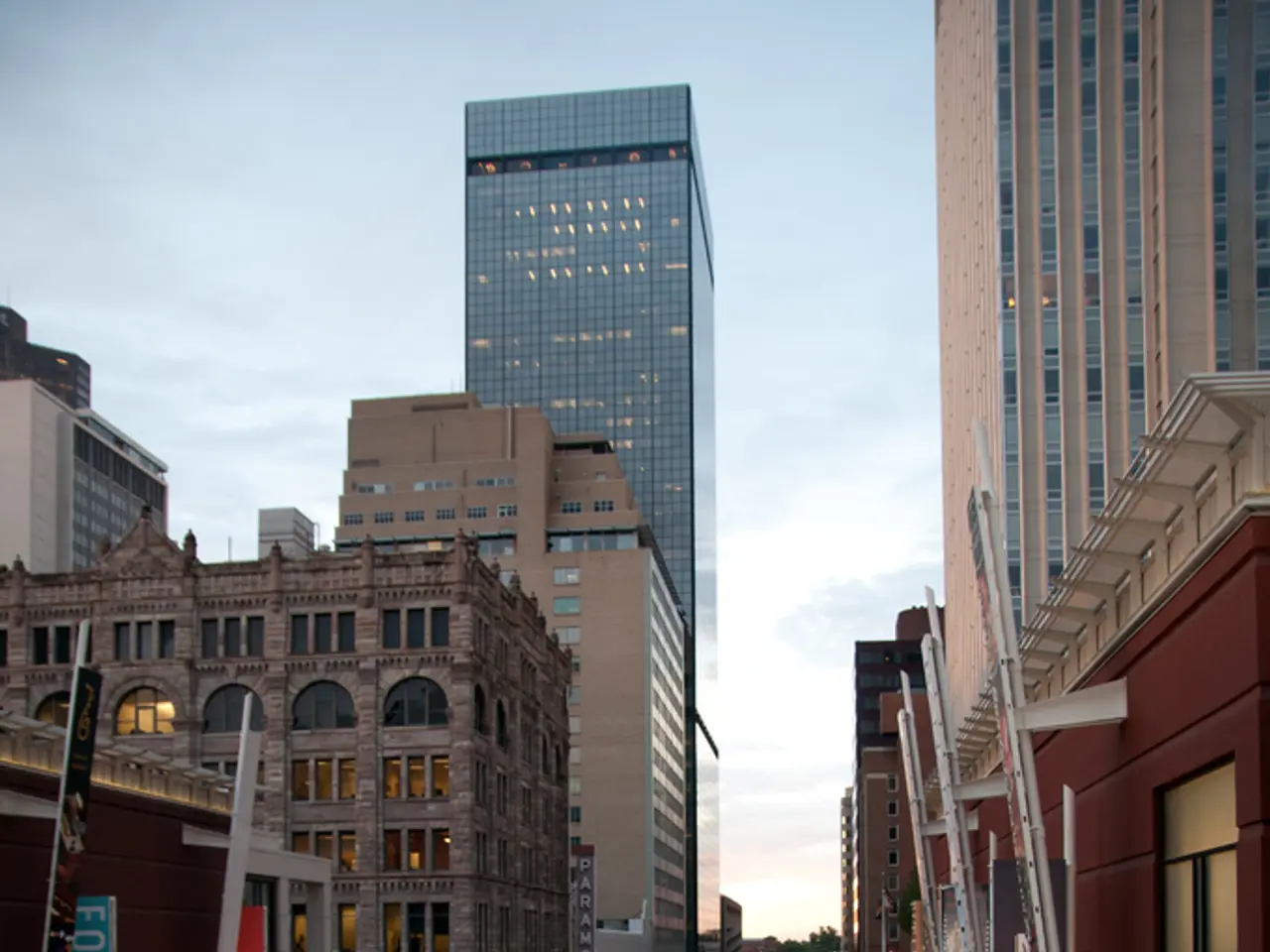Doha's property market taking off in 2025: Sales hitting records, 9% profits, and monumental projects mapping the city's future course.
Doha's Real Estate Market Booms in 2025
Doha's real estate market is experiencing a robust recovery, with significant growth and investor activity in Q2 2025. Total transaction values reached QR8.9 billion, a 29.8% increase year-on-year, and the number of deals rose by 44% to 1,915[1][3].
This resurgence is driven by a variety of factors. Visionary urban development projects are reshaping the market, with master-planned expansions in Doha, Al Rayyan, and Al Daayen, and luxury waterfront projects like The Pearl-Qatar and smart city infrastructure in Lusail City[1][3]. Emerging growth in Al Wakrah and its suburbs reflects high demand for reasonably priced housing.
Digital transformation is also playing a crucial role in the sector's growth. Electronic real estate registration and transactions are simplifying processes, improving transparency, and increasing efficiency, aligning with Qatar National Vision 2030[1][4].
The rental market is also thriving, with lease contracts surging in early 2025, reaching the highest six-month level in six years. Mid-income and high-demand areas like Al Wukair, Al Mashaf, and Al Thumama are rental market hotspots[3][5].
The government's strategic national development plans are another key factor supporting the real estate market's growth. The Third National Development Strategy and Qatar National Vision 2030 emphasize infrastructure development, sustainability, and an improved living environment[1][4].
The expansion of the tourism and hospitality sectors is further stimulating residential and commercial real estate demand, strengthening Qatar as an attractive destination for local and international investors[4].
Broader MENA regional factors also contribute to Qatar's market growth. The Middle East's strategic location, ambitious infrastructure projects, and focus on innovation and sustainability are attracting real estate investment[2].
Increasing mortgage transactions indicate stronger financing activity supporting housing demand. For example, mortgage deals jumped 37% in early 2025[5].
Many developers are now focusing on premium projects and new demand niches due to the surplus in certain segments. Property values have stabilized and started to rise again[2].
Qatar's rental yields are attractive on a global scale, with rental yields of 7-9% on luxury apartments. The absence of annual property taxes and no capital gains tax on sales in Qatar offers a 20-30% cost advantage compared to purchases in taxed jurisdictions[1][6].
The government has launched initiatives to ensure the stability and transparency of the market, such as creating a Real Estate Regulatory Authority and simplifying foreign property ownership[1][7]. Green construction initiatives are also being implemented, with Qatar now boasting 115 LEED-certified projects totaling 22.6 million square feet[1][8].
In conclusion, the recovery and sustained expansion of Doha’s real estate market in 2025 are driven by urban and infrastructural development, digital and regulatory advances, rental market growth, strategic government vision, and strong investor interest.
[1] Al-Ansari, M. (2025). Qatar's Real Estate Market: A Comprehensive Analysis. Doha: Qatar National Bank.
[2] Al-Kuwari, A. (2025). Qatar's Real Estate Market: Opportunities and Challenges. Doha: Qatar Real Estate Development Company.
[3] ValuStrat (2025). Qatar Real Estate Market Report. Dubai: ValuStrat.
[4] Qatar National Vision 2030. (n.d.). Retrieved from https://www.qnv2030.qa/en/
[5] Qatar Central Bank. (2025). Quarterly Bulletin. Doha: Qatar Central Bank.
[6] Qatar Real Estate Regulatory Authority. (2025). Qatar Real Estate Market Report. Doha: Qatar Real Estate Regulatory Authority.
[7] Qatar National Bank. (2025). Qatar Real Estate Market Report. Doha: Qatar National Bank.
[8] Qatar Green Building Council. (2025). Qatar Sustainability Report. Doha: Qatar Green Building Council.
The resurgence in Doha's real estate market is not only due to urban development projects, like master-planned expansions and luxury waterfront developments, but also owing to the strategic national development plans, such as Qatar National Vision 2030 and the Third National Development Strategy. The government's focus on infrastructure development, sustainability, and improved living environments are pivotal in stimulating investor interest in the finance, real-estate, and investing sectors. Additionally, the emergence of digital transformation in the real estate sector, with electronic real estate registration and transactions, is enhancing transparency, efficiency, and fostering a favorable environment for investing in projects like real-estate and industries.




